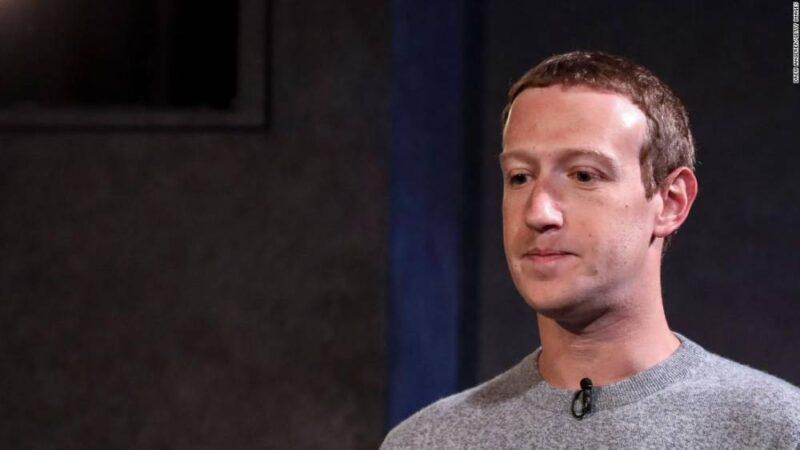New York (CNN Business)For nearly two months, Facebook has been scrambling to get a handle on a wave of criticism over its policies on moderating content, particularly hateful speech and misinformation that spreads on its platforms.
The movement prompted some policy changes and Facebook (FB) says it is working to prevent hate, and voter and census suppression. But activists are not yet satisfied and say they will continue pushing for actions, such as demanding that Facebook ban political ads that include lies. It’s not the first time Facebook’s content moderation policies have been under the microscope, but this time feels different. Voices inside the company have publicly expressed dismay over its actions, and hundreds of corporations are using the power of their ad dollars to lobby for change from the outside.
The pressure could challenge CEO Mark Zuckerberg’s long held desire to preserve free expression on the platform, especially by public figures. But Facebook’s size and power — and Zuckerberg’s outsized influence within the company — mean it’s not yet clear to what extent things might change.
A timeline of the latest content moderation saga
Read MoreJune 1: Facebook employees staged a virtual walkout over the company’s inaction on a series of controversial posts from President Donald Trump, including one that said, “when the looting starts, the shooting starts,” a phrase with racist origins that critics worried could incite violence. Twitter put a warning label on the same post for violating its rules against “glorifying violence.” June 2: Zuckerberg held a town hall with employees to explain his decision not to take action on Trump’s incendiary remarks. But not everyone felt good about the conversation. Brandon Dail, a Facebook engineer, tweeted: “It’s crystal clear today that leadership refuses to stand with us.” June 17: Facebook said it will allow users to block political ads.June 17: A coalition of nonprofits launched the #StopHateforProfit campaign, calling on major corporations to pause advertising on Facebook in July, citing the company’s “repeated failure to meaningfully address the vast proliferation of hate on its platforms.”June 18: Facebook removed ads from Trump’s re-election campaign for violating its policies on hate. June 19: Outdoor apparel company The North Face became the first major brand to join the ad boycott. Soon, REI and Upwork joined, too. June 23: More well-known brands joined the boycott, including Patagonia and Ben & Jerry’s, ratcheting up pressure on Facebook and other advertisers. June 24: On a call with advertisers, a Facebook executive acknowledged that the social media giant faces “a trust deficit.”June 26: By this point, the list of advertisers boycotting Facebook had grown to include major firms such as Unilever (UL) and Coca Cola (CCHGY). Also during this week, Facebook wrote in an email to advertisers: “We do not make policy changes tied to revenue pressure.”June 26: Zuckerberg announced that Facebook will ban ads that scapegoat minorities, immigrants, racial or other groups as part of a wider crackdown on hate speech. Facebook will also apply warning labels to user posts that are newsworthy but violate the platform’s policies. Rashad Robinson, president of the civil rights group Color of Change, called the remarks “11 minutes of wasted opportunity” and doubled down on calls for advertisers to boycott Facebook.June 28: Facebook executive Nick Clegg pushed back on the premise of the boycott, saying the company has “no incentive to tolerate hate speech.” June 29: Facebook stock fell 3% early in the day before rebounding, a sign that the boycott had begun to rattle investors.July 7: Zuckerberg and other Facebook executives met with civil rights and activist groups to discuss the demands of the boycott. After the meeting, the groups slammed Facebook for what they said was a failure to firmly commit to or outline a timeline for making the changes they’d requested. July 8: An audit of Facebook’s practices found the platform continues to operate with glaring blind spots for hateful content and misinformation on the site, and has made a number of decisions in the last year that “represent significant setbacks for civil rights.” Facebook has committed to hiring a senior executive with civil rights experience to oversee the company’s application of civil rights priorities.

Civil rights and activist groups say they’re not yet satisfied with Mark Zuckerberg’s response to their calls for change at Facebook.
What’s next?
At the moment, Facebook has a clear problem on its hands, especially after anti-hate advocates were not pleased with Zuckerberg’s attempts to mollify their concerns. The ad boycott is unlike anything the platform has experienced in its recent history. Still, whether the movement actually leads to long term change or a material impact on Facebook’s finances remains to be seen. While the companies boycotting the company are highly visible and have deep pockets, most of Facebook’s ad revenue comes from small and medium-sized businesses, potentially insulating it from too much of a revenue shortfall from the boycott. And after the month long boycott period ends, some of the participating companies may be eager to get back to accessing Facebook’s billions of users and valuable trove of user data. Then there’s Mark Zuckerberg, who exercises complete voting control over the company and can’t be removed by shareholders, a factor that executives say could make Facebook less susceptible to outside pressure than most businesses.
Even in the midst of the controversy, Facebook is finding new opportunities. After India banned popular video-sharing platform and Facebook rival TikTok earlier this month, Instagram began testing a competitor app called Reels in the country. The move could further grow Facebook’s presence in one of the world’s largest markets and signals that the company still has significant runway for growth despite the challenges it’s faced in recent weeks.
Source: edition.cnn.com

